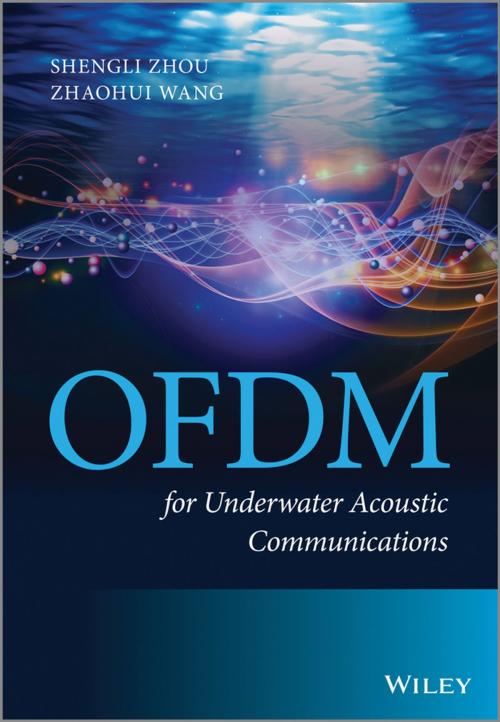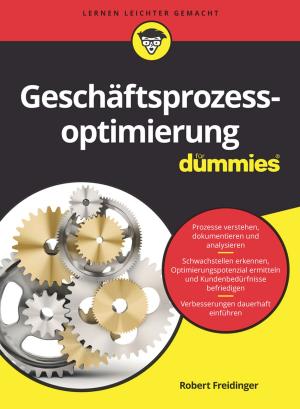OFDM for Underwater Acoustic Communications
Nonfiction, Science & Nature, Science, Physics, Waves & Wave Mechanics| Author: | Zhaohui Wang, Sheng Zhou | ISBN: | 9781118693810 |
| Publisher: | Wiley | Publication: | March 21, 2014 |
| Imprint: | Wiley | Language: | English |
| Author: | Zhaohui Wang, Sheng Zhou |
| ISBN: | 9781118693810 |
| Publisher: | Wiley |
| Publication: | March 21, 2014 |
| Imprint: | Wiley |
| Language: | English |
A blend of introductory material and advanced signal processing and communication techniques, of critical importance to underwater system and network development
This book, which is the first to describe the processing techniques central to underwater OFDM, is arranged into four distinct sections: First, it describes the characteristics of underwater acoustic channels, and stresses the difference from wireless radio channels. Then it goes over the basics of OFDM and channel coding. The second part starts with an overview of the OFDM receiver, and develops various modules for the receiver design in systems with single or multiple transmitters. This is the main body of the book. Extensive experimental data sets are used to verify the receiver performance. In the third part, the authors discuss applications of the OFDM receiver in i) deep water channels, which may contain very long separated multipath clusters, ii) interference-rich environments, where an unintentional interference such as Sonar will be present, and iii) a network with multiple users where both non-cooperative and cooperative underwater communications are developed. Lastly, it describes the development of a positioning system with OFDM waveforms, and the progress on the OFDM modem development. Closely related industries include the development and manufacturing of autonomous underwater vehicles (AUVs) and scientific sensory equipment. AUVs and sensors in the future could integrate modems, based on the OFDM technology described in this book.
Contents includes: Underwater acoustic channel characteristics/OFDM basics/Peak-to-average-ratio control/Detection and Doppler estimation (Doppler scale and CFO)/Channel estimation and noise estimation/A block-by-block progressive receiver and performance results/Extensions to multi-input multi-output OFDM/Receiver designs for multiple users/Cooperative underwater OFDM (Physical layer network coding and dynamic coded cooperation)/Localization with OFDM waveforms/Modem developments
A valuable resource for Graduate and postgraduate students on electrical engineering or physics courses; electrical engineers, underwater acousticians, communications engineers
A blend of introductory material and advanced signal processing and communication techniques, of critical importance to underwater system and network development
This book, which is the first to describe the processing techniques central to underwater OFDM, is arranged into four distinct sections: First, it describes the characteristics of underwater acoustic channels, and stresses the difference from wireless radio channels. Then it goes over the basics of OFDM and channel coding. The second part starts with an overview of the OFDM receiver, and develops various modules for the receiver design in systems with single or multiple transmitters. This is the main body of the book. Extensive experimental data sets are used to verify the receiver performance. In the third part, the authors discuss applications of the OFDM receiver in i) deep water channels, which may contain very long separated multipath clusters, ii) interference-rich environments, where an unintentional interference such as Sonar will be present, and iii) a network with multiple users where both non-cooperative and cooperative underwater communications are developed. Lastly, it describes the development of a positioning system with OFDM waveforms, and the progress on the OFDM modem development. Closely related industries include the development and manufacturing of autonomous underwater vehicles (AUVs) and scientific sensory equipment. AUVs and sensors in the future could integrate modems, based on the OFDM technology described in this book.
Contents includes: Underwater acoustic channel characteristics/OFDM basics/Peak-to-average-ratio control/Detection and Doppler estimation (Doppler scale and CFO)/Channel estimation and noise estimation/A block-by-block progressive receiver and performance results/Extensions to multi-input multi-output OFDM/Receiver designs for multiple users/Cooperative underwater OFDM (Physical layer network coding and dynamic coded cooperation)/Localization with OFDM waveforms/Modem developments
A valuable resource for Graduate and postgraduate students on electrical engineering or physics courses; electrical engineers, underwater acousticians, communications engineers















